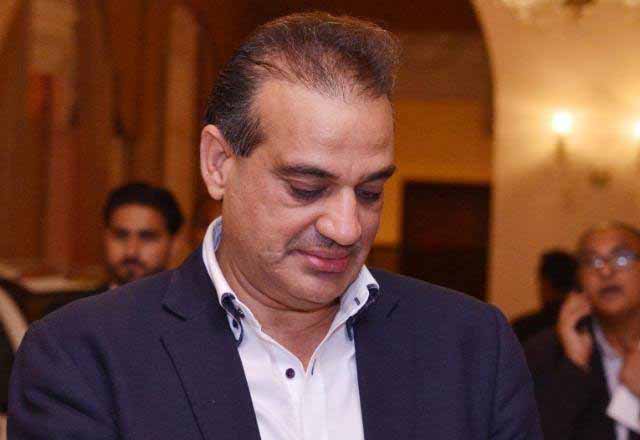Comment
Ansar M Bhatti
Foreign Minister Bilawal Bhutto Zardari’s visit to Goa, India in the wake of SCO foreign ministers summit held on May 4-5, has evoked a mixed reaction, especially at home. While the leaders of Pakistan Tehreek-e-Insaf continue to take a dig at the foreign minister for ‘earning disrespect’ for the country, others would give him full marks for not only aptly representing Pakistan at the highest forum but to respond befittingly to the India narrative in which it tried to build a terrorism case against Pakistan.
Those who laud Bilawal’s Indian sojourn as a landmark event tend to quote his interview with the India Today, in which Bilawal said, “This wolf whistling around the word terrorism which is ultimately an Islamophobic wolf whistle not only to whip up Hindu sentiment in India but also to brow beat Pakistan, that might be election strategy for some but not effective terrorism strategy”.
FM Bilawal’s visit may be a good omen in terms of easing of tensions between the two arch rivals, nevertheless it may not be construed as a big success with regard to resumption of diplomatic and political relations at a full scale. We have to keep in mind that it was not a bilateral activity.
It was an SCO event and as an active member of the Organisation Pakistan was supposed to be there physically. Contrary to the PTI contention that Bilawal would have participated in the meeting online and thus avoided ‘embarrassment inflicted on him by his Indian counterpart by not shaking hands with him’, let us be optimistic that the visit may augur well with regard to future bilateral interactions provided it is reciprocated by the Indian side in the same fashion.
Pakistan rightly believes that India should take occupied Kashmir status back to pre-August 5 position in order to pave way for normalization of relations, however if India finds it difficult to immediately go back to that position, it needs to give a word that it might re-think about its policy towards IOJK, which may ultimately lead to pre-August 5 position.
The Indian media perhaps was not fair in its comments when it said that FM Bilawal Bhutto visited India just to appease the Pakistani Establishment and he lacked public support for this visit.
This presumption does not hold any ground for the majority of Pakistani people wanting to have normal relations with India as they strongly believe that easing of relations would ultimately benefit peoples of both countries. However, for such contacts to take place on a regular basis the Indian government needs to show flexibility and willingness. The way the Indian foreign minister received his Pakistani counterpart with no traces of smile on his face; no hand shake and even no warmth, in no wise, can help contribute to building bridges.
But at the same time, there is no denying the fact that Pakistan and India direly need each other at this critical juncture when the world is passing through the worst kind of recession and economic downturn. Pakistan appears to have been hit hard, first because of weak economic policies and secondly due to political instability.
Then floods did the rest of the damage. It was perhaps the time when trade with India, though at a small level, could have mitigated sufferings of especially the flood-hit people. India must understand that the Pakistani side needs to have valid excuses in order to engage in any bilateral activity including trade, while the Pakistani side needs to shelve differences, at least during odd times such as floods and other natural calamities, for the sake of its people.
At the end of the day it is Pakistan and India who have to sit together to sort out their differences. If we expect that the US or Russia or any other power would help us iron out our differences, it may not be a rational approach.
China, however, can be a sincere facilitator as it has huge stakes in Pakistan and India as well. But for this to happen China and India perhaps have to mend fences first, which, at this moment seems to be a daunting task, but not impossible indeed. If Saudi Arabia and Iran, the two deadliest enemies, can reach a rapprochement then why not China and India and India and Pakistan?
Given the complex relations between Pakistan and India the spate of accusations and even protests should be a normal thing. The BJP activists held demonstrations against FM Bilawal simply because Bilawal, in the past, had dubbed Modi as the ‘Butcher of Gujarat’.
Even before the start of the SCO meet, there was a consensus among the intelligentsia on both sides that no breakthrough would be achieved at Goa with regard to Pakistan, India bilateral relations. Analysts are of the view that India has missed an opportunity of mending fences with Pakistan by extending lukewarm hospitality to FM Bilawal.
India would be hosting the SCO leaders’ summit in July. A positive interaction at Goa would have paved the way for some fruitful engagement during the leaders’ summit. As a host, India should have planned one-on-one meetings between the FMs of two countries. Things can still be put on the track as we still have some more months before the SCO leaders’ conference.
Ball is in India’s court. Let us see how it conducts itself in these months to make sure that during the leaders’ summit some breakthrough is achieved with regard to easing of tensions and resumption of full scale diplomatic ties.

















